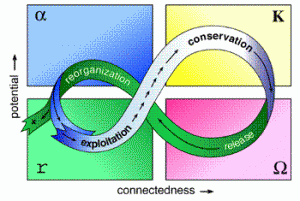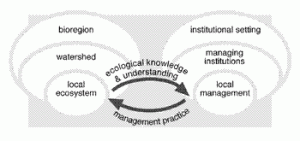
Open Source Politics and Religion
I just sent the following to an email list I’m on (Google Group Next Net), and thought it would be worth sharing here:
I’ve been involved with R.U. Sirius in instigating an International Open Source Party (version 2.0 – we tried it before but it didn’t quite launch). He wrote about it here. This article includes the principles I came up with for Open Source politics, which I include below. Open Source is not a religion, i.e. not based on faith in something that can’t be observed or experienced. It’s about transparency: when we apply the term Open Source we’re talking about following methods and processes in production and distribution such that whatever we define as “source code” can be observed and experienced, so to me it’s the opposite of religion. Eric Hughes once explained to me, when I was new to Open Source thinking, that a particular encryption tool should be Open Source so that its source could be examined and its effectiveness and integrity verified. Politics should be like this, and if we all insisted on this approach, religion would be transformed into practice (a la Buddhism and 4th Way) rather than dogma (a la much of Christianity).
Principles of Open Source Politics:
Openness
Many of us who are tech-focused have come to understand the power of open approaches and open architectures. Even technologies that aren’t strictly “Open Source” benefit from Open APIs and exposure of operating code (kind of inherent with scripting languages like Perl and PHP). When we know how something works, we know how to work with it. And we know how to transform it to meet our needs.
Government should be as open and transparent as possible. There may be some rationales for closed doors, but few — for the most part, citizens should be able to clearly see how decisions are made. That’s a key component of our political platform: we want to see the actual “source code” for the decisions that affect our lives.
Collaboration
Open Source projects are often highly collaborative and can involve many stakeholders, not just manager and coders. The Open Source Party sees this as a great way to do government. (I’m partial to charrette methodology, personally.)
Emergent Leadership
Effective action and decison-making requires leadership. In an Open Source form of politics, leaders emerge through merit -— by providing real leadership and direction, not by appointment, assignment, or election. Nobody made Linus Torvalds the lead for Linux, or Matt Mullenweg the lead for WordPress. They saw a need, created a project, and found an effective following who acknowledged their vision, expertise, and ability to manage and lead. Emergent leaders aren’t handed authority. They earn it, and if they cease to be engaged or effective, they pass the baton to other leaders who emerge from within the group.
Extensible and Adaptable
Open Source projects and structures are agile and malleable. They can be adapted and extended as requirements changed. Governance should have this kind of flexibility, and our system of governance in the U.S. was actually built that way. We should ensure that bureaucracies and obsolete rule sets don’t undermine that flexibility.




